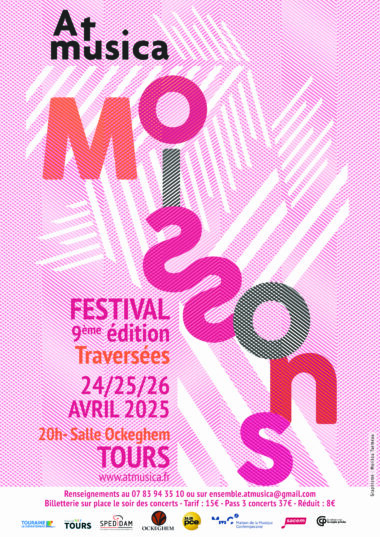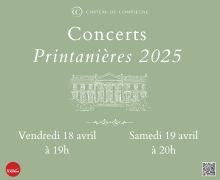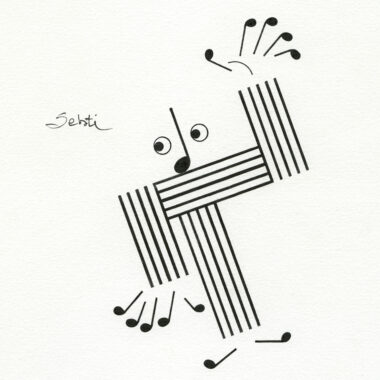Violinist Dmytro Udovychenko, First Prize of the 2024 Queen Elisabeth Competition
Plus de détails
The Ukrainian violinist Dmytro Udovychenko, First Prize of this high-level 2024 Queen Elisabeth Competition, answered some of our questions related to his experience at the Competition and to his art.
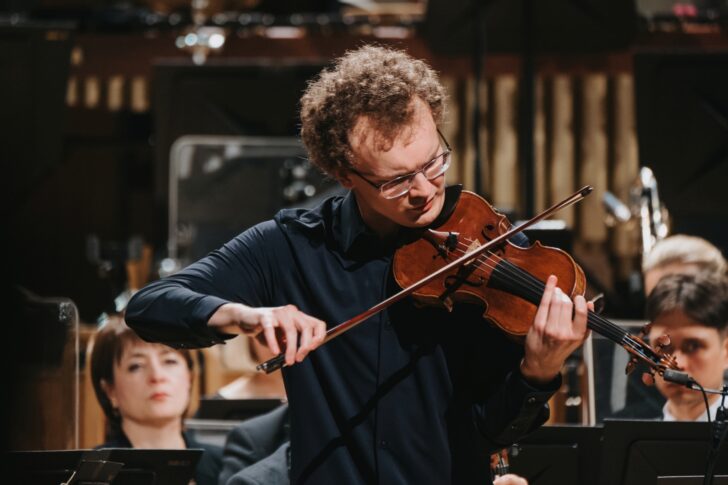 ResMusica : Could you maybe introduce yourself briefly for the audience ?
ResMusica : Could you maybe introduce yourself briefly for the audience ?
Dmytro Udovychenko: I am Dmytro Udovychenko, coming from Ukraine, now 25 years old. I Just won Queen Elizabeth competition in Brussels.
RM : How do you feel today ?
DU : If I had heard a story like this; I wouldn't believe it actually were true, what happened yesterday, but life continues and I need time to absorb what happened.
RM : May I ask you how you chose the violin? Because I heard that you are from an family of altists.
DU : It was a pretty easy and obvious choice. I would be surprised if I would be anything otherwise but musician in these circumstances.
When everyone is playing viola, you start with the violin and just forget to change.
RM : You won already a lot of competitions, I saw that you won at least 7 important competitions. Why did you choose to enter in the Queen Elisabeth Competition ?
DU : this competition was always my dream from very early age. I heard and discovered a lot of legendary history of this competition and always wanted and dreamed to be part of it.
From yesterday's dream comes true. It's an unbelievable thing to reach this point here in Brussels.
RM : Despite the huge impact on your life, would you say that the experience of playing during this concert, the contact with the audience, changed you also ?
DU : Certainly, it was absolutely unique. First of all, atmosphere in the concert hall while playing because I guess here in Belgium everyone is looking forward a lot to this event and waiting for it. This is a big thing and I was really happy to be part of it and I think this exactly created this magical atmosphere in the audience which I really appreciated and enjoyed a lot.
RM : What would you say what the most difficult thing about participation in this competition ?
DU : I guess mental pressure because as I said, it's a very big event and even though you try to maybe ignore it at some point or place it a bit far from yourself, but you want it or not, it's a part of the game.
The great history of this event certainly has its mark on the way you are existing in this circumstances.
RM : I think it was in the interview you gave at the middle of the competition that you said that you would play for the jury like he was the audience. Could you say at the end of this experience that you really feel free to express yourself? Did you see the difference between the competition and playing for the audience ?
DU : Yeah, there is always a difference. Maybe most likely, unfortunately, there is a difference, but actually maybe only for you as a player. as a people it's just a great event as I already said.
It's lots of emotions and what I try to do is just express my message as much as I could to the audience and to the jury as a part of the audience because it's very hard to aim to be liked by everyone, especially in the jury because you never know the preferences. I think the best way is just to try to be yourself. That's what I try to do.
RM : Did you think it was also an opportunity to reach out with a more general audience, a less specialized audience, not only people who are used to go to concert halls ?
DU : Yeah, certainly. On this subject, I think this goal was achieved in this competition. Many more people will be interested in this music as a result of it, which is great news for us as musicians.
RM : Can you say a word about the way you composed your program ?
DU : This year the special thing for me would be that for the semi-final, the competition committee chose to have this time limit of just 30 minutes of recital program, which for me was surprisingly little time.
I had to think really carefully and precisely to fit the program that would describe me as an artist into this half an hour period of time. So that's why he pretty limited, I would say, number of sonatas such like maybe Poulin, Debussy, Ravel, two sonatas, Janáček, maybe some Brahms sonatas and what I picked the Schnittke first sonata because I felt this music was closer to me than others, especially in this reality describing, I would say, horror and fear of a life really. My other program would be Schoenberg Fantasy, which is also a genius piece and what I can say, I really needed to think very carefully about the program. And, as a part of a challenge, it was also very interesting.
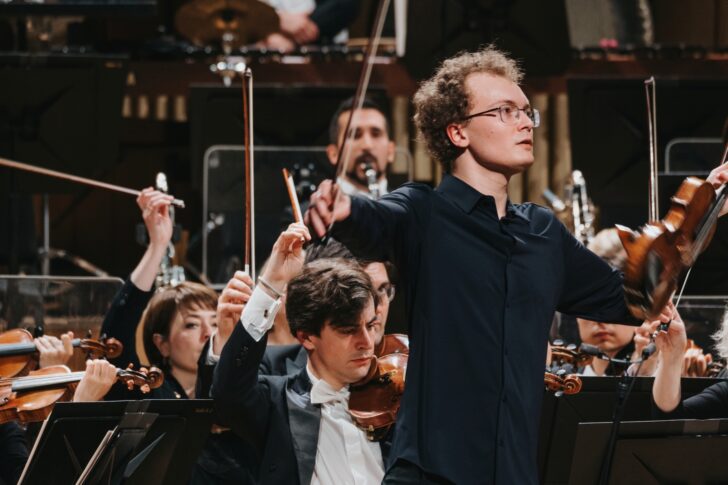 RM : I have seen that you had a special link with Schostakovitch, maybe it's your favorite composer ?
RM : I have seen that you had a special link with Schostakovitch, maybe it's your favorite composer ?
DU : You are right, it's my favorite composer, my favorite piece of music, it's his first violin concerto. And I will not be afraid to say that I have connection with this piece for quite a long time of my life. Maybe comparing to others, it's not a long time. But, basically, pretty much all of my serious life I was aware of this piece, I was in love with this piece and felt really close to it.
RM : I would like to know a bit more about your instrument, and maybe, your bow.
DU : My instrument is Giovanni Battista Guadagnini named « the Kingman » (1769), kindly provided by the Deutsche Stiftung Musikleben Foundation, based in Hamburg. And I will not be tired to say that I am extremely thankful and incredibly happy to have this opportunity to play this definitely best instrument in my life. The bow I played in the final was kindly provided to me by my dear professor Boris Garlinsky, it's his very good bow from his personal collection.
RM : What are the qualities that you appreciate with this violin ?
DU : It's just unbelievably rich spectrum of colors that it can provide and also this kind of violins I think they depend a lot on the personality of the player. And somehow I felt this one is leaning somewhere close to me.
RM : Just two more personal questions, if I may. I would like to know if you had a message for maybe Ukrainian musicians who are living obviously hard times for the moment
DU : I as a Ukrainian musician I was can remember my experience to share the stage here in Brussels last September this symphony Orchestra of Ukraine, for example, who is based on from young musicians 16-20 years old, coming from Ukraine, and this orchestra made by a wonderful maestro Oksana Linnev is definitely the future of Ukrainian music.
And I would love to collaborate with this collective more and to see its development in the musical life and also big cheers to my dear friends very music-found in Ukraine who still in this hard circumstances of everyday's life still fighting to make concerts in Ukraine, to develop as young musicians, modern Ukrainian music, in Ukraine.
Even in these circumstancesn they're making what they can and it's absolutely wonderful and I would love that world might pay more attention to it.
RM : Thank you so much. Maybe you will have some time needed to process what just happened to you, but for the moment, but what your view on the future, maybe the next year, next month, next weeks.
DU : I think, fortunately, I have absolutely no idea what is coming. But I think it's something very good and bright for me. And I'm looking very much forward to see things from a different perspective now for myself as an artist.





